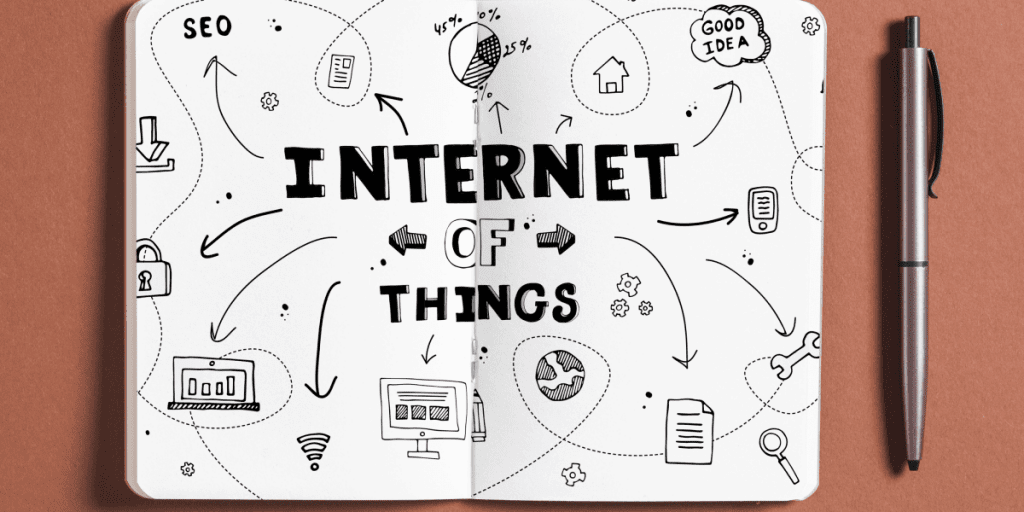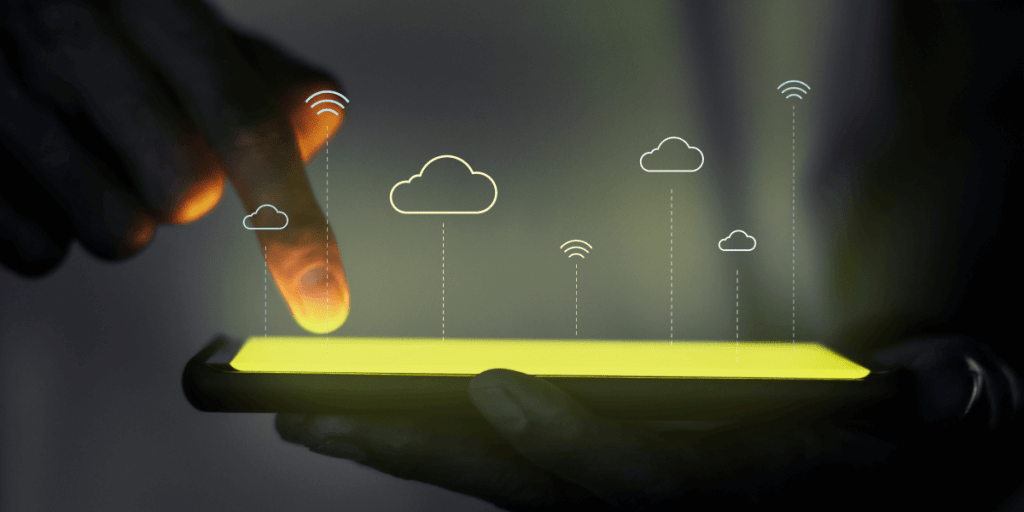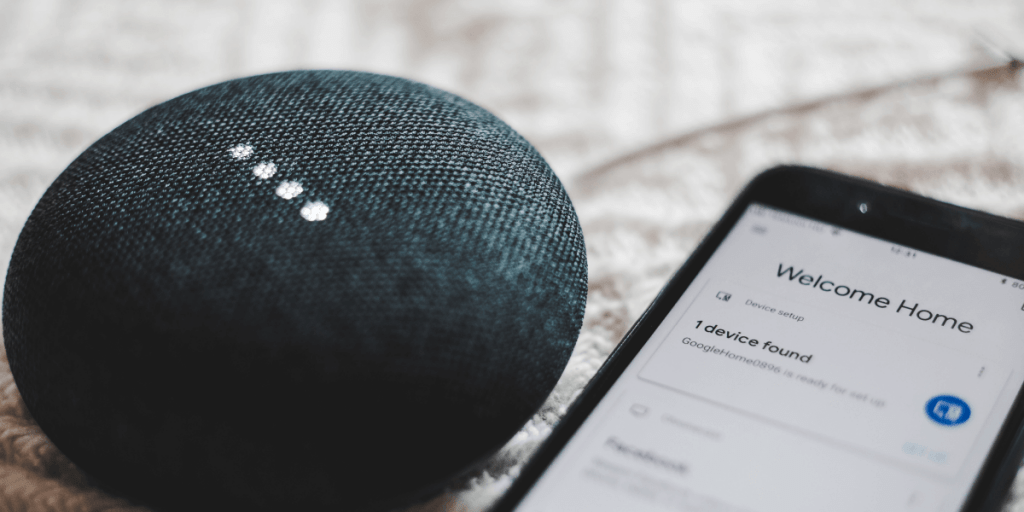What Is the Internet of Things All About and How It Is Influencing the Development Industry?
The Internet of Things, or IoT, has created hype in the latest years and started to impact the custom development industry and the way we travel, shop, track shipments and inventories, etc. The number of goods connected to the internet is rapidly growing, and the way that the internet is changing our world is impacting how we live and work. Anything that can be connected to the internet will be connected.
In this article, we will take the Internet of Things concept and go on a deep dive into what it means, what it does, how it’s changing the industries and the way we live, etc. Follow along for a better understanding of the impact of IoT applications.
What Is the Internet of Things?

Internet of Things, shortly IoT, has gained popularity in the last 16 years. The idea of connected devices has been around since 1970, but it was called “embedded internet” or “pervasive computing”. In 1999, the internet was a new trend and Kevin Ashton, who was working for Procter&Gamble, invented the term “Internet of Things”. However, IoT got popular only ten years later.
Internet of Things represents a consistent network that connects ordinary objects you find in the real world, around the house, at work or in the environment and supports exchanging information between them. Human intervention is not needed in this process. The interconnection between objects can be wireless via Wi-Fi, Bluetooth, NFC or through various cable combinations such as coaxial, power supply or twisted pair. The process uses the machine-to-machine (M2M) principle.
The IoT phenomenon is prevalent in mobile software development as it facilitates our daily lives. This network of devices, gadgets, machines, computers, house appliances, etc., that can transfer data over the internet impacts our social and digital world.
Why Is Development Industry Important for IoT?
According to Statista’s Research Department, by 2025, there will be 75 billion Internet of Things connected electronic devices in use, three times more than in 2019. This wildly rapid growth in apps for IoT technologies is not going to stagnate any time soon. Therefore, identifying business opportunities to incorporate connectivity and communication between smart devices is essential. By 2030, the Internet of Things is estimated to bring 14 trillion dollars of economic value to the global economy. Businesses across all industries have started to implement custom applications of the IoT to their specific needs and business model.
The interrelation between the physical world (physical devices and wearable devices) and the virtual world (web applications, mobile solutions technologies, etc.) has opened a door for a wide range of possibilities and thrilling technological innovations for both B2B and B2C industries. Smartphones, TVs, home appliances, clocks, fitness bracelets, and lots of other gadgets around us are part of IoT. These networked devices require both back-end and front-end work. Therefore, the need and demand for IoT technologies have risen over time.
Internet of Things brings convenience and ease into our lives as it provides access to real-time data. More than that, the practical application of these smart technologies can be used in many industries, from energy, healthcare, banking, manufacturing, agriculture, logistics, eCommerce, etc. Because of this, IoT has proven to be a powerful tool that revamps the development process.
How does IoT work?

Devices and objects with embedded sensors are connected to an IoT platform, which collects data from the different devices. The platform then analyses the data and shares the most valuable information with apps built to address specific needs. With these powerful IoT platforms, you can pinpoint exactly what information needs to be collected and what can safely be discarded.
Using IoT technologies for your business can optimise and improve your efficiency. For example, a manufacturing business can use sensors to detect the most popular areas in the showroom and identify which products are selling faster so you can drill down on the available sales. The sales data is instantly aligned with the supply. Therefore, the high-demand products are not going out of stock. An energy business can implement Internet of Things applications to improve energy efficiency and reduce unnecessary energy consumption.
IoT devices pick up information and real-time data that will help your business save time and money. Its advanced analytics capabilities will help your systematic review of how to automate repetitive tasks, better your task’s time management, and increase your ROI.
What Are the Pros and Cons of IoT?
We are surrounded by smart devices and IoT assets such as tracking devices, sensors, intelligent security cameras, kitchen appliances, light switches, automatic door locks, etc. The way we interact with them and between us is changing fast. We love the convenience and IoT devices that ease our lives.
Let’s see what the pros and cons of IoT are:
The positive impacts of IoT:
- Facilitates communication;
- Saves time as it increases business interactions;
- More convenient and less complicated shopping, transactions and banking;
- Instant access to the news all around the world;
- Eases our lives through virtual assistants;
- Healthcare, eCommerce, Logistics, Energy businesses, etc. have IoT devices and AI to facilitate processes.
To sum up, IoT increases automation, productivity, and efficiency. It gives instant access to real-time data and improves direct communication.
The negative impacts of IoT:
- Kids can get access to some age-inappropriate content or information;
- Fake news or propaganda can be easily spread via these devices.
- Social networks can disrupt and negatively impact people’s personal and professional life;
- Hacking IoT devices and stealing their data is not extremely difficult;
We believe that the future of the Internet of Things will expand and evolve into a more advanced ecosystem as technologies such as 5G, artificial intelligence, machine learning and software development are always looking for improvements, uniqueness and innovation. As a result of these actions, IoT will come up with new products and solutions, upping the economies, and more IoT developers will be needed. We consider the impact of the Internet of Things on the business, social life, economy and development industry will be positive and will innovate more.
How Is the Internet of Things Influencing the Development Industry?

As we can see, IoT positively impacts multiple industries by helping with automatisation, productivity, efficiency, communication, customer behaviour analysis, etc. But how did it influence the development industry?
First and foremost, IoT development is a booming business and the need for IoT apps is increasing. Since its growing popularity, the tech industry started to expand by upgrading the eCommerce and mobile industry, creating new apps for entertainment, etc. It’s also helpful in increasing user engagement by providing customised experiences for each consumer’s needs.
IoT significantly impacts the tech industry because it has many purposes and can be used in almost every market sector. This is pushing developers to upgrade their skills and unlock their creativity. Let’s see how IoT has influenced the development industry:
- The way data is collected. IoT devices compile an extensive amount of data that should be collected appropriately. More than that, developers must ensure the safety of the data collection because the data is collected through special pieces such as sensors, and it needs to be “transported” outside their network. Developers rely on servers to collect data, and it is mandatory to ensure its protection through integrity and security. Furthermore, the data comes from thousands of devices. Therefore, ensuring the effective streaming of this giant volume of information. It requires the implementation of independent mechanisms, something different from traditional packet transfers that can handle this massive amount of data. Developers should also focus on fixing errors, adding industry-specific features and reworking the user interface when needed.
- The complexity of development. IoT needs different thinking regarding development because of the data amount it handles. It requires an intricate user interface and unbreakable security, so it needs increased complexity in the development process. In the IoT environment, the data is processed and transferred with the help of cloud networks to ensure real-time data accuracy. Therefore, the developers should have increased knowledge and skills about network stability, a flawless understanding of databases, and think beforehand of scalability opportunities. Developers should also stay updated with the current emerging technology.
- The focus is on security. Because IoT devices do not have intricate security mechanisms, developers need strong encryption skills to protect every device from security breaches. The IoT gadgets will require some security systems for user authentication, identity verification, and access management to prevent bad scenarios.
- The complexity of dynamic user interface. IoT apps need a dynamic user interface to meet the needs of users. UX/UI elements are essential to keep the customer engaged and to offer a smooth user experience. The development process involves more than the development technologies and front-end frameworks. An expert UX/UI designer must be part of the team.
Conclusions – Our Opinion
Even if the Internet of Things is somehow new, it is a soaring technology. Its expansion and adaptability are developing so fast that more and more users can connect to it. In our modern internet era and technology landscape, we say with no hesitation that this type of development is impacting not only various industries but our daily lives as well. We believe IoT custom development will rise in demand, and development companies should adhere to it.
If you have an exciting project and need a development agency to bring your plans to life, you can contact us today! Check out our blog for more helpful information about development and take a look at our reviews for a better understanding of our working process and methodologies.
Frequently Asked Questions
IoT is about connecting various devices to the internet.
Fitness trackers, smart refrigerators, smart watches, intelligent fire alarms, smart security cameras, etc.
Wireless, Bluetooth, NFC, RFID, 5G, etc.
It automates, provides real-time data and offers valuable information to improve business processes.